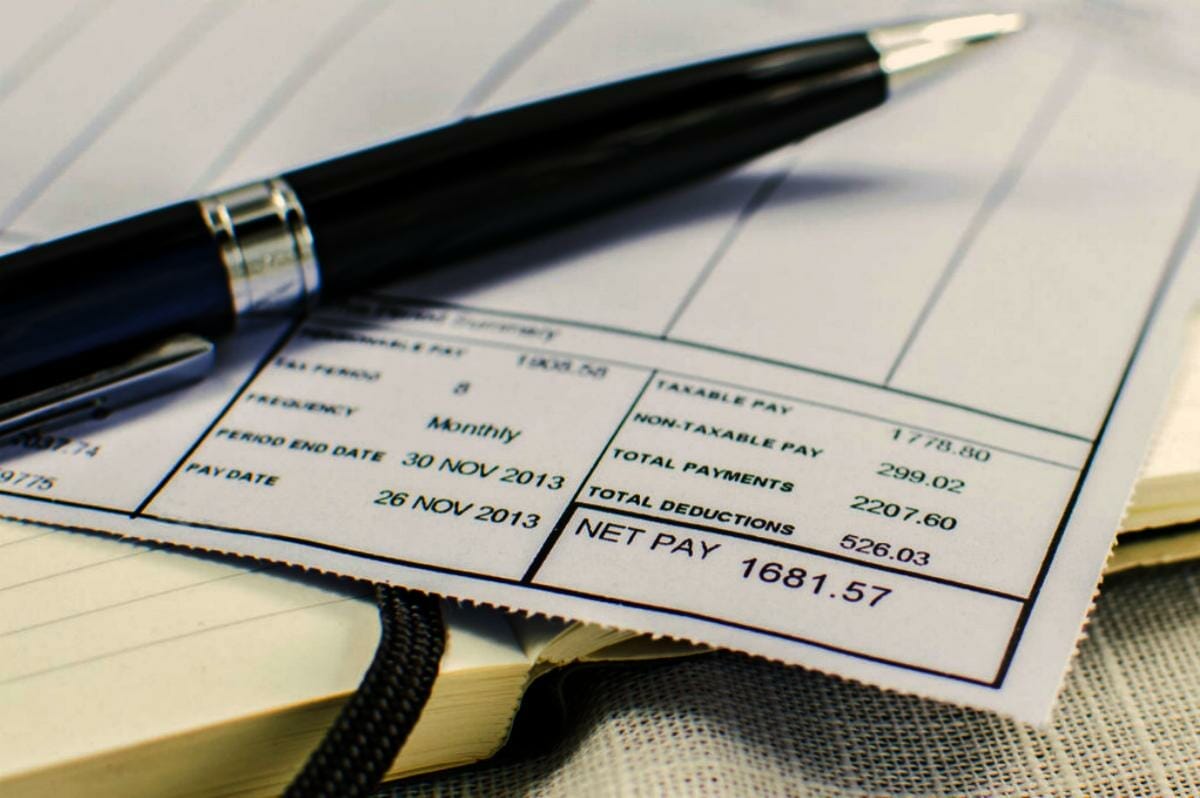If ever you get involved in a wage garnishment issue, here are some things you need to keep in mind.
Understanding Wage Garnishment: 9 Things to Do
1. Understand What Wage Garnishment Is
First, it is important that you know the concept behind garnished wages.
Wage garnishment happens when a creditor sues you for unsettled dues (such as unpaid loans or credit card bills) and when the court judgment favors the creditor. The court then requires your employer (through a court order) to withhold a portion of your paycheck, thereby diminishing your take-home salary.
The creditor can either be a private institution, such as banks and other loan-granting institutions, or the government through the Internal Revenue Service (IRS).
2. Know the Procedure for Wage Garnishment
In order for garnished wages to fully take effect, the following elements must be present:
- There should be a case filed against you.
- The court should render a judgment in favor of the creditor.
- There should be a court order given to your employer for the wage garnishment.
- Either the creditor (who filed the case) or your employer should inform you that there is a court order for the wage garnishment.
The court order, however, only applies to cases from private creditors. The IRS can ask for wage garnishment even without a court order.
3. Determine the Amount of Wage Garnishment
For cases coming from private institutions, the amount to be withheld from your paycheck depends on the amount dictated in the federal law.
There are also wage garnishment laws by state, which dictates different caps depending on the state. Some states also created their own wage garnishment cap, too.
So depending on which is lower, the amount could either be 25 percent of your net income (based on federal law) or the cap specified in the wage garnishment laws by state.
As for cases coming from the IRS, the amount to be withheld from your paycheck depends on your filing status and the number of your dependents. The IRS provides this table, which shows the amount it will leave on your paycheck following the wage garnishment.
4. Pay Dues on Time
How to stop wage garnishment immediately, you may ask? The primary step to prevent garnished wages is to pay your dues on time. Keep track of your payables by putting them on your calendar, and make sure that you do not miss payment deadlines.
Your ultimate goal is to keep your credit status in tune. Just a slight diversion in your regular payments may anger your creditors and lead them to file a case against you. So, keep your creditor happy by being a diligent payor.
5. Try to Negotiate
For some payors, there will definitely come times when it is unavoidable to miss a payment. If this is the case, try to talk to your creditor immediately and discuss your unfortunate financial circumstance.
Remember, one factor in having wage garnisment implemented is that there should be a lawsuit in court — and ultimately, a court judgment against you. Trying to negotiate immediately with creditors may help prevent things from reaching the court.
As for your dues with the IRS, one may explore any of the following options:
- setting up a payment plan
- making a settlement offer called an Offer in Compromise
RELATED: IRS Offer In Compromise | What Is It And How Can It Help You
6. Take a Look at the Court Order
The good thing about court orders is you may file an appeal.
So, in the event that a court order for wage garnishment is present, look carefully at the court document. Read everything and make sure that all information provided is accurate.
A single error or discrepancy can already be a possible ground for a case appeal.
Another benefit of looking carefully at the court order is the opportunity to identify whether the case really applies to you. With all the instances of identity theft and security breaches happening nowadays, it may be that the case against you is someone else’s fraud.
Protect yourself from being a victim by scrutinizing the court order.
7. Pay Attention to Court Rules
Given the court order, you are now at the mercy of the court. And so you have to pay attention to court rules, such as their guidelines on appeal.
You may have as few as five business days from the receipt of the order to review the document and voice out your objection. Also, in the event that the court invites you, make sure you attend on time. Otherwise, the court will side with the creditor.
8. Think Twice Before Filing for Bankruptcy
Some would suggest filing bankruptcy because this will stop your wage garnishment while the bankruptcy proceedings are going on.
This can be a good option since the court will see that you are in a poor financial state and you don’t have any means to pay your debts. Consider this option if you have other debts to deal with, as well.
However, don’t rush into this decision. Think twice before acting.
Filing bankruptcy will have a major impact on your financial credibility. It carries with it consequences and implications that affect your credit score. This decision shouldn’t be made lightly.
9. Never Quit Your Job Permanently
The court issuance for wage garnishment is specific to an employer. So if you change employers, the court will have to issue a new order, which can take several months.
Some people see this as an opportunity to slow down the entire wage garnishment process. You may opt to temporarily leave your job for a period of time and later return to work.
This will give you some time to work on other tactics such as negotiating with the creditor or looking for other means to earn and pay your due.
Just don’t ever think of quitting your job permanently. This might seem like a sound idea, but this will not give you an escape from the case.
It does nothing more for you than prolong and complicate the process. There’s no other way to end the problem but to face the case.
No one wants to have garnished wages, so think twice before taking out a loan or signing up for a credit card. In worst case scenarios, always consult a professional to get the best option on how to stop wage garnishment immediately.
Have you or your loved ones experienced a wage garnishment? Share with us your stories in the comments section below.
Up Next: 9 Tax Relief Tips You Can Do When You’re In Tax Trouble




